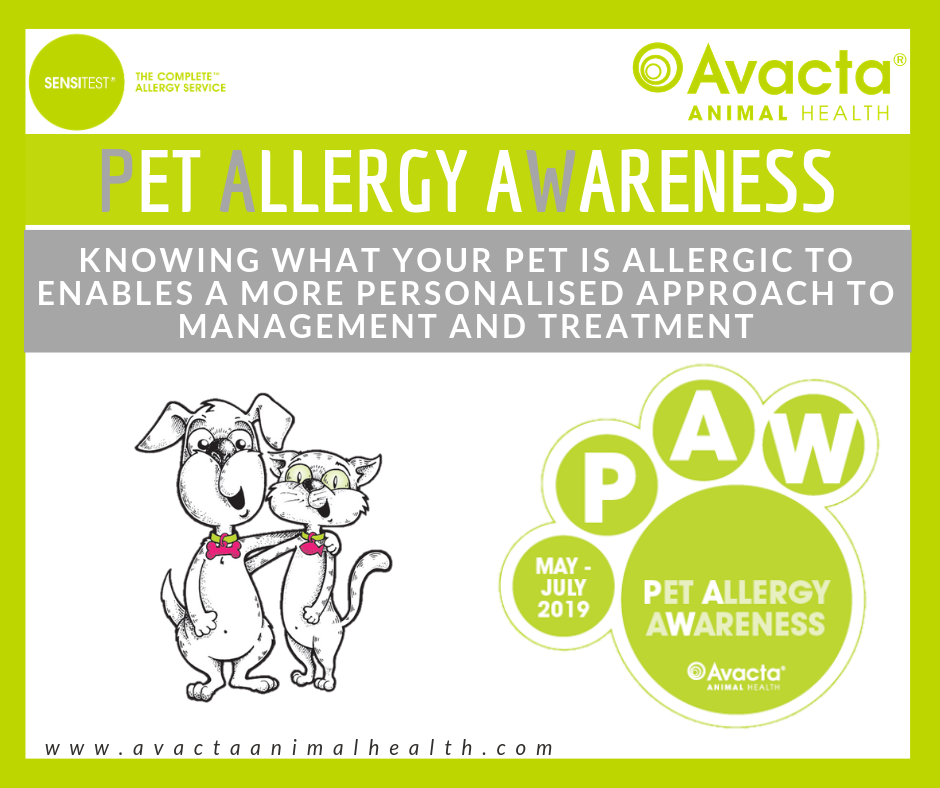
Just like us, animals can suffer from allergies. An allergy is a reaction of the immune system to a common substance, known as an allergen. The most common pet allergens are fleas, foods, tree pollens, grass pollens, moulds and mites e.g. house dust mites or food storage mites.
Allergens enter the pet’s body by being inhaled, ingested or absorbed through the skin.
Common symptoms of allergies in pets are manifested as skin disease and include:
SKIN PROBLEMS – itching, scratching, rashes and redness. In dogs allergies commonly manifest as persistent licking, face rubbing, paw chewing and skin irritation/itching. In cats you may notice scabs on the skin or the cat persistently licking and grooming itself.
EAR PROBLEMS – swelling, itching and soreness. If you dog suffers from repeat ear infections, there may be an underlying allergy. You can read a useful article about ear disease in dogs here.
HAIR LOSS – commonly on the back/rump in dogs and cats with flea allergy.
These symptoms can be seen with a variety of other problems, but allergies are one of the most common. If your pet suffers with these signs, we would advise a check-up with the vet. They may advise tests including checks for fleas and other skin parasites; food trials; and blood tests to identify allergies. With the results of allergy blood tests, the vet can then provide you with options for managing your pet’s condition.
There is no quick fix to managing allergies in pets, but usually a combination of the following are used for skin disease:
- Strict flea control with effective prescription products
- Shampoos to prevent secondary skin infections and improve the skin barrier
- Special foods and/or supplements – either hypoallergenic if diet is a trigger factor, or diets/supplements formulated especially for skin disease which help to improve the skin barrier and reduce inflammation. Many pet foods are marketed as ‘hypoallergenic’, but for a true diet trial the vet may recommend a prescription hydrolysed diet, where the protein in the food is made too small to cause a reaction.
- Anti-inflammatory/anti-itch drugs
- Immunotherapy – these are injections used with the aim of de-sensitising the pet to their allergens
- Antibiotics/ear drops – these are sometimes needed to treat secondary skin/ear infections
You can read more about allergen avoidance and management here.
Throughout May, June and July we are pleased to be able to offer reduced prices for specified allergy blood screens in conjunction with Avacta Animal Health. To book a check up with the vet to discuss allergy blood tests or to have your pet’s skin checked give us a call on 01803 606059 (Torquay), 01803 843836 (Paignton) or book online.
